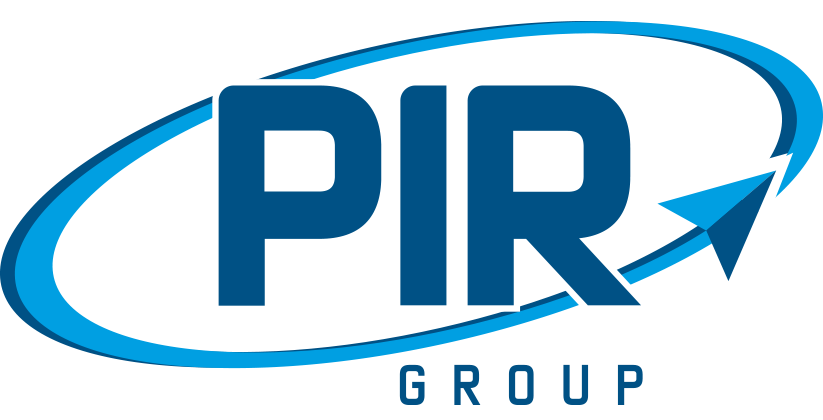Recognized Sponsorship: What’s The Catch?
4 November 2021, The Netherlands – You work at an international company in The Netherlands and you want to hire international talent on an easy and regular basis. What a great idea it is for your business to become a recognized sponsor! As you may already know, you can get this recognition at the Immigration and Naturalisation Service (the IND) and the benefits of this recognized sponsorship are endless. Perhaps your company already holds such a status – successfully placing international talent on the Dutch payroll for years – but what you really want to know is: what’s the catch? Simple answer: Compliancy!
Compliancy is knowing the rules and following these accordingly. From our experience, we notice that employers often see the recognition at the IND as a diploma: “Yay, we got it in the bag, let’s go!” There seems to be this feeling of having passed the IND’s test and thinking that immigration rules only apply to internationals and not for the company itself. This, we would say, is the biggest myth and could lead companies to fall into a rabbit hole of non-compliancy. When hiring international talent as highly skilled migrants your company becomes responsible for them, kind of like a parent – minus the bottle feeding and diaper changes that is. Although on paper there is no expiry date on the sponsorship, there are certain things you need to continuously do to keep the IND at bay. The IND is quite clear on what you must do to retain your sponsorship and your international staff, so let’s dive into this ocean of duties and obligations for recognized sponsors.
Catch #1: Careful recruitment and explanation of immigration requirements – The duty of care
The duty of care means that when you want to hire an international professional as a highly skilled migrants or intra corporate transferee, your recruitment and selection process must be careful – so the catch is that your candidates must know on what immigration basis they will be hired.
Firstly, it would be good check if their work experience and credentials or diploma’s match the highly skilled salary that you want to offer.
Secondly, you must inform these professionals already during the recruitment and selection process which conditions they must meet for entering and residing in The Netherlands as a highly skilled migrant.
You can inform your international employees easily by sharing this IND brochure: Coming to work in The Netherlands.
Once the employment contract is signed, make sure that the international professional confirms that they received and understand the brochure and keep that confirmation in your employee’s file up to 5 years after the employee left the company. You may think: “But.. we never share this brochure, not even with our current highly skilled staff.” No problem, it’s not too late to shine! Just send them the brochure and obtain from them a written confirmation of understanding.
Catch #2: Maintaining a thorough administration for your international staff – The duty of administration
In the application procedure you must provide certain information and several documents. All these details and documents must be kept in your employees’ files. All clear, so what’s the catch?
Most employers do not realize that the Antecedents Certificate must be kept in these files as well.
Catch #3: Keeping the IND informed of all relevant changes – The obligation to provide information
Keeping the IND informed seems easy, but is it though? The obligation to provide information means that you must proactively and timely report to the IND where there is a change that could impact: 1) the international professionals residence right or 2) the employer’s sponsorship status.
When you don’t know what is relevant for a residence right or what could impact your sponsorship status, it does get a bit tricky to be compliant and there you have the catch to this obligation.
Imagine that you hired an international and successfully applied for their highly skilled migrants status. You may think that the immigration part is now completed and you can focus on hiring the next candidate. However, to remain compliant you must keep continuous focus on the international professionals who are already on your payroll. Should the employee leave your company, then this is a relevant change to report to the IND as the permit is directly linked to working at your company. Besides changes related to your international staff, you may want to keep the IND also informed with important changes related to your company. When your company details change, this is a relevant change to report. Below are some examples you can think of as relevant:
10 things that the IND must know about your highly skilled migrant employees, all to keep them lawfully working at your company:
- Later start date: The employee will start working on a later date than planned and as mentioned in the application form.
- Time for the kids: The employee will take parental leave and due to such leave their salary may not meet the salary norm.
- Lower salary: The employee took a (mini) sabbatical or started working less hours resulting in lower pay.
- New position: The employee was promoted and this changed their job title.
- Long stay abroad: The employee left the country to enjoy a holiday or family time and their stay abroad is taking more than 3 months.
- Work project abroad: The employee left the country to work on a project and their stay abroad is taking more than 6 months.
- End of employment: The employee left your company and may work at a different company or different branch of your company in The Netherlands.
- Departure: The employee stopped working for your company and also left the country permanently.
- Stuck abroad: The employee was on a holiday abroad and now they cannot return back to The Netherlands for a reason of force majeure.
- 30% tax ruling mistakes: The 30% tax ruling was not applied correctly for the employee.
Changes that concern your employee must be reported within 28 days after the change took place, but there is absolutely no harm in informing the IND already sooner. You can report the changes easily online via the Business Portal of the IND via the de-register form (afmelden) or per post with the English or Dutch notification form.
Now the company may also undergo certain changes that the IND would love to hear about.
5 things that the IND must know about changes in your company, all to keep a clean record:
- Move of office: The company has a new address.
- New base for the archive: The company has a new location for all the administration.
- Company name change: The company has a new name but the Chamber of Commerce number stayed the same.
- Ownership or board member changes: The company has a new board member or owner.
- New bank account: The company has a new business bank account which is normally used for the direct debit of the IND application fees.
Changes that concern your company must be reported within 14 to 28 days depending on the type of change that took place, but again: there is absolutely no harm in informing the IND already sooner. You can report the changes easily online via the Business Portal of the IND via the notification form for changes recognized sponsors (melding wijziging positie erkend referenten) or per post with the English or Dutch notification form.
So, the points mentioned above are of course not limitative. We should also mention that apart from reporting in time, often depending on the situation you are required to take action as well.
Therefore, it is always smart to check with an immigration expert or casually with the IND if a situation needs to be reported and what you need to do to remain compliant.
Is there any harm in forgetting about your immigration obligations as a company?
After reading this piece, you may think that there’s no harm in simply swimming passed the obligations above. Another thought that may cross your mind is that the IND will never find out anyways. The truth is that the IND has many instruments at play in getting information and enforcing the rules above, such as via an audit, an unannounced investigation at your company or via a request in writing. There also may be whistle blowers throwing shade informing the IND about your failure to meet the duties.
Please bear in mind that when the IND finds out about any kind of failure, this draws attention to your company, not the good kind of attention, and they will enforce their rules. You really don’t want this for your company.
Read more about law enforcement here. You can think of a warning or note in your sponsor file, an administrative fine of about € 1500,- to € 3000,- per violation and in the worst case scenario: your sponsor ship could be withdrawn, kind of like they took your parental rights and your ability to hire and take care of highly skilled migrants. See also an article from the IND showing that enforcement is high on the IND’s agenda for 2021 and we expect this trend to continue.
At PIRGROUP, we understand that it may be difficult to keep track of all the rules and to stay compliant in all possible ways. We are always happy to brainstorm with you on what you need to report. There are of course deadlines for reporting the relevant changes, but it is never too late to climb out of the rabbit hole! The aim of this blog was to give some guidance in your company becoming a star at sponsorship compliancy. If you are interested in a compliancy training for your HR staff or your inhouse Global Mobility department, feel free to contact us or call us at the phone number +31 (0) 85 – 620 4900.
By Sorayda Kappel, Senior Immigration & Relocation Consultant at PIRGROUP The Netherlands.




